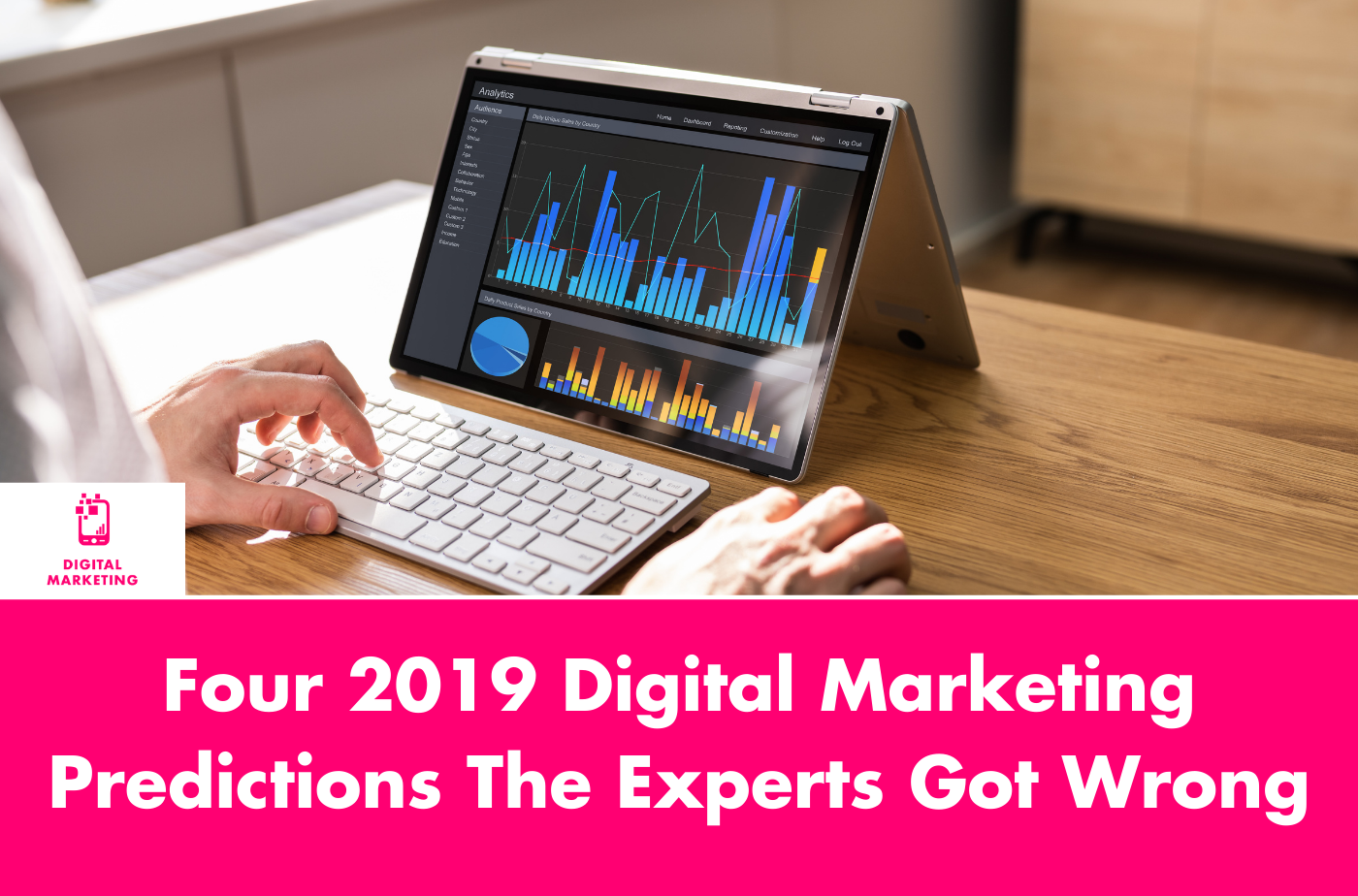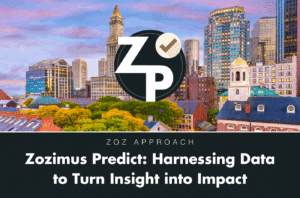As I was starting to work on my 2020 digital marketing predictions, I decided to take a look at how accurate the 2019 predictions were from industry leaders. The result was frankly disappointing.
Predictions from Google
- Multi-channel will grow into omni-channel
- The importance of the mobile experience
- Voice services will boom
- Breakthrough chatbots
- Personalization through data-driven marketing
- The value of custom content will increase
Lenovo offered up
- AI Starts to Transform Marketing
- Privacy Laws Disrupt Ad Sales
- Voice-Based Marketing Enters Mainstream
- Digital Communication Becomes Personal
Jeff Bulas said
- Omnichannel Marketing
- Artificial Intelligence
- Chatbots
- Personalization
- Video Marketing
Convince and Convert has similar views saying
- Omnichannel Marketing
- Artificial Intelligence and Machine Learning
- Voice Search
- Personalized Marketing
- Video Marketing and Influencer Marketing
- Visual Search
It was clear in the minds of the experts that 2019 would be the year of:
- Omnichannel marketing
- AI/ML
- Voice Search
- Chatbots
Omnichannel Marketing
Convince and Convert defines Omnichannel marketing as “a type of marketing that connects the dots between multiple channels, ensuring a consistent user experience and encouraging the consumer to engage with your brand at every touchpoint across multiple channels.” The ideas behind this prediction made sense a year ago. In B2B, it takes 8 touches to make an appointment today, with many of those touches taking place across multiple platforms. Business owners and CMO’s understand the importance of omnichannel marketing. The challenge is attribution. How do you track these multiple touchpoints–which is an issue at the Fortune 100 level, never mind the world of Small and Medium Sized businesses? The recent CMO survey showed that CMO’s expect to double their analytics budget in 2020 from 7.2% of marketing budgets in 2019 to 11.6% of budget by 2022. This growth in analytics is fueled by marketers trying to understand the performance of Omnichannel Marketing. But marketers also struggle with measuring the impact of Omnichannel Marketing–only 40% of marketers report having the right quantitative tools to demonstrate the impact of marketing spend on company performance. The silver lining is that this is the highest reported level of use of quantitative tools in the history of The CMO Survey. Omnichannel Marketing will continue to be important to marketers, regardless of the size of the company. But attribution tracking is a big hurdle to overcome, and that will impact how diversified a company’s digital marketing strategy will be in 2020 and beyond.AI/ML
Using the definitions from Convince and Convert, once again: Artificial intelligence (AI) is the branch of computer science that is all about teaching the machine to think and act like a human being. Machine learning is usually what runs behind AI algorithms. While AI is basically all about teaching the machine to replace human beings, machine learning is about teaching the machine what a human brain cannot grasp, e.g. complex data mining and future predictions based on current patterns. Two of the best examples of AI-empowered marketing are:- Amazon: Using AI to analyze each particular buyer’s decisions and suggest products to them they didn’t even know they want or need.
- Netflix: Using AI for content recommendations and beyond. Netflix successfully applies AI for product development too. They have analyzed years of viewer data to create successful products of their own, including the hit “House of Cards.” Put simply: thanks to AI, Netflix knows what people want before they do.
Voice Search
We have all seen the stats about how strong the growth is in voice search:- 55% of households are expected to own smart speaker devices by 2022. That’s a 42% jump from today’s household ownership numbers (Source: OC&C Strategy Consultants).
- Voice commerce sales reached $1.8 billion last year, per OC&C Strategy Consultants. They’re predicted to reach $40 billion by 2022.
Chatbots
Definition from Wikipedia: A chatbot is a piece of software that conducts a conversation via auditory or textual methods. Such programs are often designed to convincingly simulate how a human would behave as a conversational partner, although as of 2019, they are far short of being able to pass the Turing test According to Gartner, by 2020 85% of such interactions between consumers and brands will take place via chatbots, without human participation. In order for Gartner’s prediction to come true, consumers have to be willing to engage with a bot, and the data suggests that they don’t want to. According to Statista polls, only 34% of respondents prefer chatbots to traditional channels of communication with online retailers. One reason for the reluctance of consumers to fully embrace chatbots is that bots are only as good as the playbooks that they are built on. Most chatbots that answers questions have been programmed to provide an answer to a specific question. Which means they are only as good as the database of questions and answers they have. When a consumer asks a question whose answer is not in the database, the bot stops working. Which is the second reason why consumers prefer chatting with real people. We don’t think linearly like a machine. Instead we jump from one topic to another, which is difficult to program a chatbot to handle. Also, we like personalized attention from our favorite brands, and the chatbot experience is the opposite of that. For a lot of companies that had chat on their site in 2019, the chat feature was simply a fill in a form where someone would get back to you, or it redirected you to the right department like an auto attendant on a phone system. It has not AI or ML, which is why is impact has been less that predicted, especially amongst SMB’s.Conclusion
Predicting trends, even for the next 12 months, can be a daunting task. However, it is clear that the enthusiasm in 2019 for Omnichannel marketing, AI/ML, Voice Search, Chatbots was a little early. Will these channels and tactics be influential in 2020? Stay tuned for my 2020 digital marketing predictions. David Wilson, VP Digital Performance and Analytics, is experienced in helping brands increase traffic, leads and revenue.BOSTON, MARS



